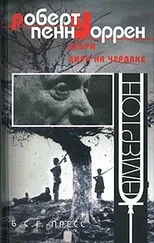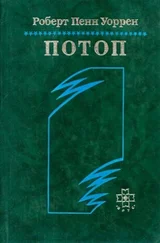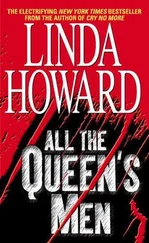Роберт Уоррен - All the king's men
Здесь есть возможность читать онлайн «Роберт Уоррен - All the king's men» весь текст электронной книги совершенно бесплатно (целиком полную версию без сокращений). В некоторых случаях можно слушать аудио, скачать через торрент в формате fb2 и присутствует краткое содержание. Жанр: Современная проза, на английском языке. Описание произведения, (предисловие) а так же отзывы посетителей доступны на портале библиотеки ЛибКат.
- Название:All the king's men
- Автор:
- Жанр:
- Год:неизвестен
- ISBN:нет данных
- Рейтинг книги:4 / 5. Голосов: 1
-
Избранное:Добавить в избранное
- Отзывы:
-
Ваша оценка:
- 80
- 1
- 2
- 3
- 4
- 5
All the king's men: краткое содержание, описание и аннотация
Предлагаем к чтению аннотацию, описание, краткое содержание или предисловие (зависит от того, что написал сам автор книги «All the king's men»). Если вы не нашли необходимую информацию о книге — напишите в комментариях, мы постараемся отыскать её.
All the king's men — читать онлайн бесплатно полную книгу (весь текст) целиком
Ниже представлен текст книги, разбитый по страницам. Система сохранения места последней прочитанной страницы, позволяет с удобством читать онлайн бесплатно книгу «All the king's men», без необходимости каждый раз заново искать на чём Вы остановились. Поставьте закладку, и сможете в любой момент перейти на страницу, на которой закончили чтение.
Интервал:
Закладка:
Gilbert received a commission as colonel in a cavalry regiment. Cass enlisted as a private in the Mississippi Rifles. "You could be a captain," Gilbert said, "or a major. You've got brains enough for that. And," he added, "damned few of them have." Cass replied that he preferred to be a private soldier, "marching with other men." But he could not tell his brother why, or tell his brother that, though he would march with other men and would carry a weapon in his hand, he would never take the life of am enemy. "I must march with these men who march," he wrote in the journal, "for they are my people and I must partake with them of all bitterness, and that more fully. But I cannot take the life of another man. How can I who have taken the life of my friend, take the life of an enemy, for I have used up my right to blood." So Cass marched away to war, carrying the musket which was, for him, but a meaningless burden, and wearing on a string, against the flesh of his chest, beneath the fabric of the gray jacket, the ring which had once been Duncan Trice's wedding ring and which Annabelle Trice, that night in the summerhouse, had slipped into his finger as his hand lay on her bosom.
Cass marched to Shiloh, between the fresh fields, for it was early April, and then into the woods that screened the river. (Dogwood and redbud would have been out then.) He marched into the woods, heard the lead whistle by his head, saw the dead men on the ground, and the next day came out of the woods and moved in the sullen withdrawal toward Corinth. He had been sure that he would not survive the battle. But he had survived, and moved down the crowded road "as in a dream." And he wrote: "And I felt that henceforward I should live in that dream." The dream took him into Tennessee again–Chickamauga, Knoxville, Chattanooga, and the nameless skirmishes, and the bullet for which he waited did not find him. At Chickamauga, when his company wavered in the enemy fire and seemed about to break in its attack, he moved steadily up the slope and could not understand his own inviolability. And the men regrouped, and followed. "It seemed strange to me," he wrote, "that I who in God's will sought death and could not find it, should in my seeking lead men to it who did not seek." When Colonel Hickman congratulated him, he could "find no words" for answer.
But if he had put on the gray jacket in anguish of spirit and in hope of expiation, he came to wear it in pride, for it was a jacket like those worn by the men with whom he marched. "I have seen men do brave things," he wrote, "and they ask for nothing." And he added, "It is not hard to love men for the things they endure and for the words they do not speak." More and more, too, there crept in the journal the comments of the professional soldier, between the prayers and scruples–criticism of command (of Bragg after Chickamauga),, satisfaction and an impersonal pride in maneuver or gunnery ("the practice of Marlowe's battery excellent"), and finally the admiration for the feints and delays executed by Johnston's virtuosity on the approaches to Atlanta, at Buzzard's Roost, Snake Creek Gap, New Hope Church, Kenesaw Mountain ("there is always a kind of glory, however stained or obscured, in whatever man's hand does well, and General Johnston does well").
Then, outside Atlanta, the bullet found him. He lay in the hospital and totted slowly to death. But even before the infection set in, when the wound in the leg seemed scarcely serious, he knew that he would die. "I shall die," he wrote in the journal, and shall be spared the end and the last bitterness of war. I have lived to do no man good, and have seen others suffer for my sin. I do not question the Justice of God, that others have suffered for my sin, for it may be that only by the suffering of the innocent does God affirm that men are brothers, and brothers in His Holy Name. And in this room with me now, men suffer for sins not theirs, as for their own. It is a comfort to know that I suffer only for my own." He knew not only that he was to die, but that the war was over. "It is over. It is all over but the dying, which will yet go on. Tough the boil has come to a head and has burst, yet must the pus flow. Men shall come together yet and die in the common guilt of man and in the guilt that sent them hither from far places and distant firesides. But God in His Mercy has spared me the end. Blessed be His Name."
There was no more in the journal. There was only the letter to Gilbert, written in the strange hand, dictated by Cass after he had gown to weak to write. "Remember me, but without grief. If one of us is lucky, it is I …"
Atlanta fell. In the last confusion, the grave of Cass Mastern was not marked. Someone at the hospital, a certain Albert Calloway, kept Cass's papers and the ring he had carried on the cord around his neck, and much later, after the war in fact, sent them to Gilbert Mastern with a courteous note. Gilbert preserved the journal, the letters from Cass, the picture of Cass, and the ring on the cord, and after Gilbert's death, the heir finally sent the packet to Jack Burden, the student of history. So they came to rest on the little pine table in Jack Burden's bedroom in the slatternly apartment which he occupied with the two other graduate students, the unlucky, industrious, and alcoholic one, and the lucky, idle, and alcoholic one.
Jack Burden lived with the Mastern papers for a year and a half. He wanted to know all the facts of the world in which Cass and Gilbert Mastern had lived, and he did many of the facts. And he felt that he knew Gilbert Mastern Gilbert Mastern had kept no journal, but Jack Burden felt that he knew him, the man with the head like the block of bare granite, who had lived through one world into another and had been at home in both. But the day came when Jack Burden sat down at the pine table and realized that he did not know Cass Mastern. He did not have to know Cass Mastern to get the degree; he only had to know the facts about Cass Mastern's world. But without knowing Cass Mastern, he could not put down the facts about Cass Mastern's world. Not that Jack Burden said that to himself. He simply sat there at the pine table, night after night, staring at the photograph, and writing nothing, Then he would get up to get a drink of water, and would stand in the dark kitchen, holding and old jelly glass in his hand, waiting for the water to run cold from the tap.
I have said that Jack Burden could not put down the facts about Cass Mastern's world because he did not know Cass Mastern. Jack Burden did not say definitely to himself why he did not know Cass Mastern. But I (who am what Jack Burden became) look back now, years later, and try to say why.
Cass Mastern lived for a few years and in that time he learned that the world is all of one piece. He learned that the world is like an enormous spider web and if you touch it, however lightly, at any point, the vibration ripples to the remotest perimeter and the drowsy spider feels the tingle and is drowsy no more but spring out to fling the gossamer coils about you who have touched the web and then inject the black, numbing poison under your hide. It does not matter whether or not you meant to brush the web of things. You happy foot or you gay wing may have brushed it ever so lightly, but what happens always happens and there is the spider, bearded black and with his great faceted eyes glittering like mirrors in the sun, or like God's eye, and the fangs dripping.
But how could Jack Burden, being what it he was, understand that? He could read the words written many years before in the lonely plantation house after Cass Mastern had freed his slaves or in the lawyer's room in Jackson, Mississippi, or by candlelight in the hotel room in Vicksburg after the conversation with Jefferson Davis or by the dying campfire in some bivouac while the forms of men lay stretched on the ground in the night around and the night was filled with a slow, sad, susurrus rustle, like the wind fingering the pines, which was not, however, the sound of wind in the pines but the breath of thousands of sleeping men. Jack Burden could read those words, but how could he be expected to understand them? They could only be words to him, for to him the world then was simply an accumulation of items, odds and ends of things like the broken and misused and dust-shrouded things gathered in a garret. Or it was a flux of things before his eyes (or behind his eyes) and one thing had nothing to do, in the end, with anything else.
Читать дальшеИнтервал:
Закладка:
Похожие книги на «All the king's men»
Представляем Вашему вниманию похожие книги на «All the king's men» списком для выбора. Мы отобрали схожую по названию и смыслу литературу в надежде предоставить читателям больше вариантов отыскать новые, интересные, ещё непрочитанные произведения.
Обсуждение, отзывы о книге «All the king's men» и просто собственные мнения читателей. Оставьте ваши комментарии, напишите, что Вы думаете о произведении, его смысле или главных героях. Укажите что конкретно понравилось, а что нет, и почему Вы так считаете.





![Роберт Уоррен - Рассказы [Компиляция]](/books/419993/robert-uorren-rasskazy-kompilyaciya-thumb.webp)


